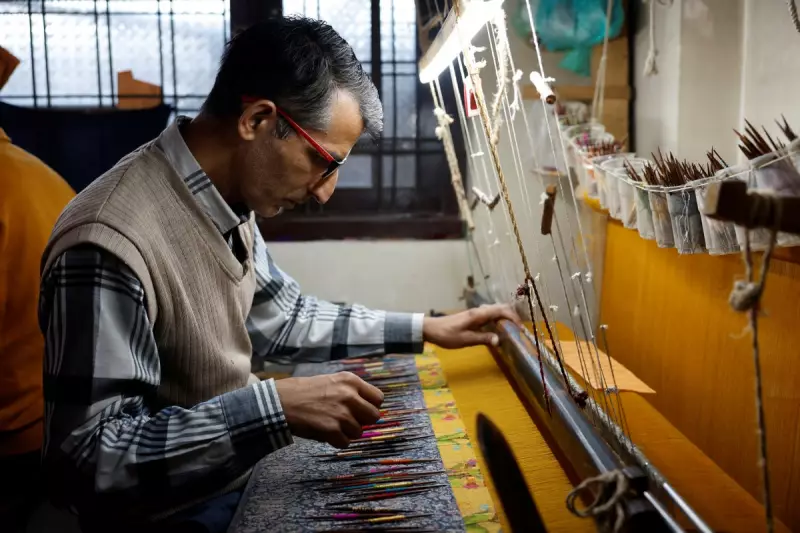
The delicate threads of Kashmir's ancient carpet-weaving tradition face an unprecedented threat from across the Atlantic, as former US President Donald Trump's proposed universal tariff policy looms over the struggling industry.
A Centuries-Old Craft in Peril
For generations, artisans in Indian-administered Kashmir have meticulously hand-knotted intricate patterns into world-renowned carpets, their skills passed down through families. Today, this cultural heritage stands at a crossroads, caught between regional political instability and potential international trade barriers.
The Trump Tariff Sword of Damocles
During his presidential campaign, Trump proposed imposing a 10% universal baseline tariff on all imports, a move that would significantly impact Kashmir's carpet exports to the United States. American retailers and consumers have long been crucial customers for these luxury handmade products.
"This couldn't come at a worse time," explains trade analyst Rohan Sharma. "The industry was already grappling with the aftermath of Article 370's revocation in 2019, which disrupted supply chains and access to traditional markets."
Economic Ripples Through the Valley
The potential tariff impact extends far beyond export numbers:
- Thousands of artisan families dependent on carpet weaving for livelihood
- Aged craftspeople training fewer young apprentices due to market uncertainty
- Traditional patterns and techniques risk being lost forever
- Local economies in weaving communities facing collapse
Quality Versus Cost Pressures
Kashmir's carpets are renowned for their exceptional quality, with some pieces taking years to complete and commanding prices up to £15,000. However, Trump's proposed tariffs would place additional pressure on already stretched profit margins.
"American buyers appreciate our quality, but there's a limit to what they'll pay," says master weaver Abdul Hamid. "Additional tariffs might push them toward cheaper machine-made alternatives from other regions."
Broader US-India Trade Relations
The tariff threat emerges against a complex backdrop of US-India trade relations. While the two nations have strengthened diplomatic ties, trade policies remain a point of contention, particularly regarding market access and protectionist measures.
Industry experts warn that protectionist policies could inadvertently harm cultural heritage industries while failing to achieve their intended economic objectives.
As the world watches the American political landscape, Kashmir's weavers continue their delicate work, hoping that centuries of tradition won't unravel due to political decisions made thousands of miles away.





